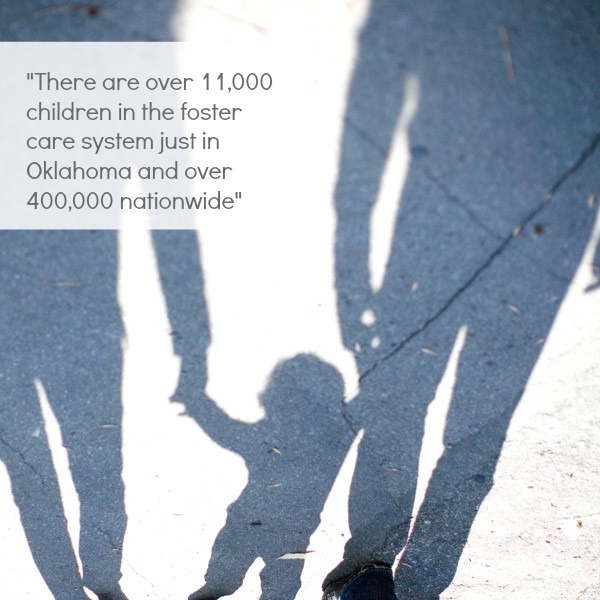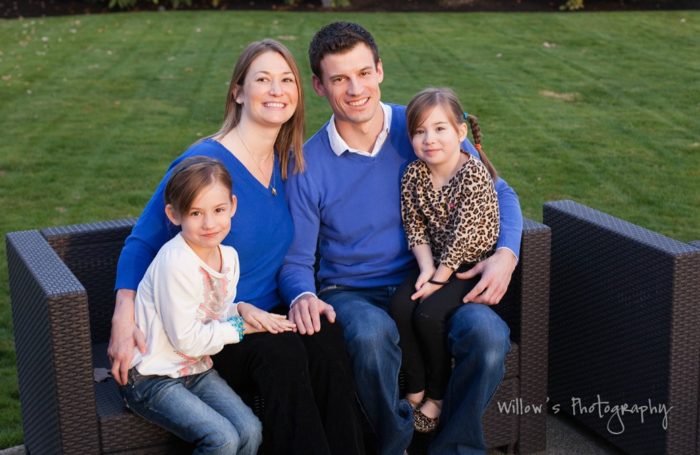people who have experienced interesting/amazing/challenging things.
This is the story of Vicki, her husband, and their foster kids.
Tell us a bit about yourself!
I’m a word nerd at heart, hailing from the decidedly non-academic state of Oklahoma.
I’ve done more than my fair share of adjunct teaching as a Master’s student in Victoria Literature and Magazine Studies, and recently started my own writing/editing/social media coaching biz, Okiewordsmith. For fun, I craft stuff, read the Internet, and hang out with my Boston Terrier, Lola VonSnortles, and my husband, Greg. I blog about my adventures as a foster parent at Dispatches from Fosterhood.
For those of us who don’t know, how does the American foster care system work?
The foster care system in America is a historically conflicted system. Americans value privacy and the freedom to raise their children in a manner they see fit. So when local or state authorities intervene in situations that are deemed dangerous to the child, many times parents are not okay with it and will often claim that the state “took” their kids away from them.
Children enter the foster care system due to ongoing family situations of neglect and/or abuse, rarely only after one instance. Abuse can be physical, emotional, mental or sexual and must be either documented or reported by another adult. A social worker from the Department of Human Services (DHS) will investigate the situation and if they find evidence of abuse/neglect, the child/children will be removed from the home.
However, most foster care is temporary and children are returned to the family home after the situation is resolved through court processes, drug counseling, parenting classes, or whatever course of action is deemed necessary to reunite the family. In extreme cases, parental rights can be terminated; the child is then available for adoption by another family or family member.
What made you decide to foster children?
From the time that my husband and I dated, we agreed that fostering and adoption would be ways that we would be open to growing our family. In addition, a few months before we got married, we found out that both he and his brother were adopted (they were 32 and 34, at the time). And while that rocked our world for a time, it only affirmed for us that adoption will continue to play an important role in our family.
We plan to adopt state-side; there are over 11,000 children in the foster care system just in Oklahoma (over 400,000 nationwide), about half of whom are “available” for adoption is reason enough to look within our country and state.
And while we’re not quite ready to adopt, financially, fostering allows us to love and invest in children in the system and make a difference now, as opposed to several years from now when we’re more financially “ready.”
What are the biggest misconceptions about foster children and foster parents?
I think one of the biggest misconceptions about people who choose to be foster parents is that they are in it for the money. During our interview process, money was rarely mentioned and a lot of effort went into verifying existing household income, personal responsibility and readiness to parent. While we do get a monthly stipend, it’s designed to cover the increased cost of housing, feeding and clothing additional children in your household.
As far as misconceptions about foster kids themselves, it’d be that they are relieved to leave an abusive home life. While at some level, that’s true, they are still being separated from their whole world: parents, home, pets, favorite toys, and possibly siblings. Many children are more angry and confused when they enter the foster care system, than they are happy and grateful. For them, the abuse was just part of their existence.
Can you tell us about the process you went through to become approved to be a foster parent?
The process can take several months (it took us about 6 months).
Steps include:
Filling out an application,
Getting assigned to a case worker
Home ‘evaluation’– checking to make sure your house/apartment is suitable for children,
Background check
Health evaluation
‘Home study’
Training
The home study is fairly in-depth. They want to know about your family’s health history, mental health history, divorces, abuses, scandals, your relationship with your family, your relationship with your partner/spouse, YOUR health, mental well-being, finances, employment history, and issues in general.
Then you wait for an appropriate match, based on number/age/sex/disability you’ve indicated you’d be willing to take (all completely up to you). We were matched with our first set of foster children within one week of completing training- 2 brothers, 6 and 8.
How do you help a new foster child acclimate to your home and life?
We found it was really helpful to lay out the ‘house rules’ first thing and develop a daily routine. Also, as appropriate, having regular contact with the children’s family (including grandparents and other extended family) helps the foster child acclimate. Depending on the situation, visits may be supervised or unsupervised, at DHS locations, at a neutral location (we were fans of the city park) or at the foster parent’s home.
What are the biggest challenges of fostering kids?
Discipline, for sure. There is a distinct feeling of helplessness when you’ve exhausted all of your discipline options, which do NOT include corporal punishment of any kind. And an additional challenge for me and my husband was that we don’t already have kids. So, a lot of stuff that we learned in DHS training- was trial by fire.
The biggest rewards?
Hugs and wonder. Although I loved exposing our foster sons to new experiences like the local art museum, my favorite times were spent reading together and then getting bedtime hugs and kisses.
What advice would you give to someone else who’s interested in fostering?
Don’t pre-qualify yourself. You do NOT have to be married, a homeowner, a stay-at-home parent or even have other kids in the home to become a foster parent.
Check out Adopt U.S. Kids or your state’s Department of Human Services website and check out the resources, trainings and protocols for fostering. From short-term fostering to adoption, there are many ways to make a difference in a kid’s life.
Thanks so much for sharing, Vicki! Do you guys have any questions for Vicki? Would you ever host foster children?
photo by jane heller, for sale here







Thank you so much for sharing your story! I really admire people who take in foster children. It's really tough!
I worked at an university with a former foster child population, and that brought up all of its own issues. For a lot of foster kids, after they turn 18, they're completely on their own. So, if they go to college and the dorm closes for winter break, they're out of luck! There are so many issues that come up with foster kids that I never even considered!
This is an excellent interview. I work in Pediatrics (currently in a practice that sees a lot of foster care kids) and I so admire and am inspired by people who do this.
I've always thought that at some point, whether I have biological children before or afterward or not, my future family will involve either fostering or adoption.
I'm a foster mom too! We had a pretty similar entry into foster care and have also only had one placement, but she was four weeks old when she arrived and will be ten months old later this week. I think your misconceptions are spot-on.
I will add one thing I wish I could say to our families and friends who think they're being supportive: When you think about it, it's pretty insulting for you to tell us that you could never be a foster parent because you'd "get too attached." You're suggesting that we won't, and that's certainly not the case. Also, for the love of god, please do not suggest that you're considering fostering dogs or something as a way to bond with us.
Ha @Rachael! I've never had anyone try to bond over fostering…dogs- that's hilarious.
But, I agree, that whole "I'd get too attached" this is vaguely insulting; I've taken to countering with, "Well, yeah, you DO get attached, but this isn't about my feelings, it's about their well-being." Boom.
Thanks for the encouraging words, all! Would love to answer questions or swap stories; come visit me at my blog too!